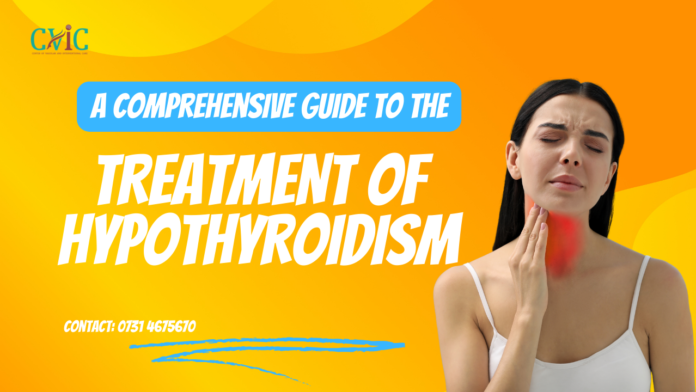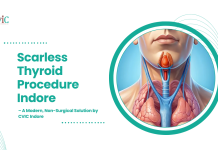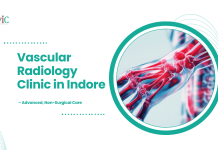Introduction
Hypothyroidism is a common medical condition that affects millions of people worldwide. It occurs when the thyroid gland doesn’t produce enough thyroid hormones to meet the body’s needs. These hormones play a crucial role in regulating various bodily functions, including metabolism, energy production, and temperature control. If left untreated, hypothyroidism can lead to a range of health issues. However, the good news is that it’s a manageable condition with various treatment options available. In this comprehensive guide, we’ll explore the causes, symptoms, and various treatment options for hypothyroidism, including medication, lifestyle changes, and alternative therapies.
Table of Contents
I. Understanding Hypothyroidism
A. What Is Hypothyroidism?
B. Causes of Hypothyroidism
C. Symptoms of Hypothyroidism
D. Diagnosing Hypothyroidism
II. Conventional Treatment Options
A. Thyroid Medication
B. Monitoring and Adjusting Medication
C. Levothyroxine vs. Other Thyroid Medications
D. Potential Side Effects
III. Lifestyle Changes for Hypothyroidism
A. Diet and Nutrition
B. Exercise and Physical Activity
C. Stress Management
D. Sleep Hygiene
E. Smoking Cessation
IV. Alternative Therapies
A. Herbal Supplements
B. Acupuncture
C. Yoga
D. Chiropractic Care
E. Homeopathy
V. Managing Hypothyroidism in Special Populations
A. Hypothyroidism during Pregnancy
B. Hypothyroidism in Children
C. Hypothyroidism in the Elderly
VI. Complications and Long-Term Considerations
A. Potential Complications of Untreated Hypothyroidism
B. Cardiac Health and Hypothyroidism
C. Osteoporosis and Hypothyroidism
D. Mental Health and Hypothyroidism
VII. Conclusion
I. Understanding Hypothyroidism
A. What Is Hypothyroidism?
Hypothyroidism is a medical condition in which the thyroid gland, a butterfly-shaped gland located in your neck, doesn’t produce enough thyroid hormones to meet your body’s needs. Thyroid hormones, primarily triiodothyronine (T3) and thyroxine (T4), play a crucial role in regulating your body’s metabolism, energy production, and maintaining a steady body temperature. When these hormones are in short supply, it can lead to a wide range of symptoms and health problems.
B. Causes of Hypothyroidism
Understanding the root causes of hypothyroidism is essential for effective treatment. Common causes of hypothyroidism include:
- Autoimmune Thyroiditis (Hashimoto’s Disease): This is the most common cause of hypothyroidism, where the body’s immune system mistakenly attacks and damages the thyroid gland.
- Thyroid Surgery or Radiation Therapy: Surgery to remove part or all of the thyroid gland or radiation therapy to treat conditions like cancer can result in hypothyroidism.
- Medications: Certain medications, such as lithium or amiodarone, can interfere with thyroid function and lead to hypothyroidism.
- Congenital Hypothyroidism: Some individuals are born with an underactive thyroid gland due to genetic factors.
- Iodine Deficiency: Insufficient iodine intake in your diet can lead to hypothyroidism, although this is less common in regions with iodized salt.
- Pituitary or Hypothalamic Disease: Problems with the pituitary gland or hypothalamus, which control the thyroid gland, can result in secondary hypothyroidism.
C. Symptoms of Hypothyroidism
Hypothyroidism can manifest with a wide range of symptoms, which can vary from person to person. Common symptoms include:
- Fatigue and weakness
- Weight gain
- Cold intolerance
- Dry skin and hair
- Constipation
- Muscle aches and joint pain
- Depression and mood swings
- Cognitive impairment
- Menstrual irregularities
- Hair loss
- Slow heart rate
- High cholesterol
- Swelling of the thyroid gland (goiter) in some cases
D. Diagnosing Hypothyroidism
Diagnosing hypothyroidism typically involves a combination of clinical evaluation and laboratory tests. Your doctor will perform a physical examination, review your medical history, and consider your symptoms. The primary blood test used to diagnose hypothyroidism is the measurement of thyroid-stimulating hormone (TSH) levels. Elevated TSH levels are an indication of hypothyroidism.
II. Conventional Treatment Options
A. Thyroid Medication
The most common and effective treatment for hypothyroidism is thyroid hormone replacement therapy. The medication used is usually levothyroxine (Synthroid), which is a synthetic form of the T4 hormone produced by the thyroid gland. Levothyroxine effectively supplements the missing thyroid hormones in your body.
Treatment with levothyroxine typically involves daily oral medication, taken in the morning on an empty stomach. It’s important to follow your doctor’s instructions and take your medication consistently. The dosage is adjusted based on your TSH levels and your response to the treatment.
B. Monitoring and Adjusting Medication
Once you start taking thyroid medication, regular monitoring is essential. You’ll need to visit your doctor for blood tests to check your TSH levels. These tests help determine if your dosage needs adjustment. The goal is to maintain your TSH levels within the normal range, which is typically between 0.4 and 4.0 milliunits per liter (mU/L).
C. Levothyroxine vs. Other Thyroid Medications
While levothyroxine is the most commonly prescribed thyroid medication, there are other options available, such as liothyronine (T3) or combination therapy that includes both T3 and T4. Your doctor will choose the most suitable medication for your specific condition and needs. In most cases, levothyroxine is the first-line treatment due to its stability and effectiveness.
D. Potential Side Effects
Levothyroxine is generally well-tolerated, but some individuals may experience side effects, including:
- Overmedication Symptoms: If your dosage is too high, it can lead to symptoms of hyperthyroidism, such as anxiety, rapid heartbeat, and weight loss.
- Allergic Reactions: In rare cases, individuals may be allergic to the medication, resulting in skin rashes or swelling.
- Digestive Issues: Some people may experience gastrointestinal problems when first starting the medication, but these often improve with time.
- Bone Health: Long-term use of levothyroxine may be associated with an increased risk of osteoporosis, so it’s important to discuss this with your doctor.
III. Lifestyle Changes for Hypothyroidism
In addition to medication, lifestyle changes can have a significant impact on managing hypothyroidism and improving your overall well-being.
A. Diet and Nutrition
- Iodine-Rich Foods: While iodine deficiency is not a common cause of hypothyroidism in regions with iodized salt, including iodine-rich foods like seafood and iodized salt in your diet can support thyroid function.
- Balanced Diet: Eating a balanced diet with plenty of fruits, vegetables, lean proteins, and whole grains can help you maintain a healthy weight and overall health.
- Soy and Goitrogenic Foods: Some foods, like soy, cruciferous vegetables (e.g., broccoli, cabbage), and millet, can interfere with thyroid function. While these foods are healthy, it’s wise to consume them in moderation.
- Gluten Sensitivity: Some individuals with hypothyroidism may have gluten sensitivity, so exploring a gluten-free diet could be beneficial.
- Supplements: Consult your doctor before taking any supplements, as some can interact with your medication or affect your thyroid function.
B. Exercise and Physical Activity
Regular physical activity is beneficial for everyone, including those with hypothyroidism. Exercise can help manage your weight, boost your energy levels, and improve overall well-being. Aim for a combination of cardiovascular exercise, strength training, and flexibility exercises. However, it’s essential to start slowly and consult your doctor before beginning any new exercise program, especially if you’ve been sedentary.
C. Stress Management
Stress can exacerbate hypothyroid symptoms, so effective stress management is crucial. Techniques like deep breathing, meditation, yoga, and mindfulness can help reduce stress and improve your mental and physical well-being.
D. Sleep Hygiene
Quality sleep is vital for everyone, but it’s especially important for those with hypothyroidism. Ensure you have a consistent sleep schedule, create a comfortable sleep environment, and practice good sleep hygiene habits.
E. Smoking Cessation
If you smoke, quitting is highly recommended. Smoking can worsen thyroid function and contribute to a range of health issues. Seek support and resources to help you quit smoking.
IV. Alternative Therapies
In addition to conventional treatment and lifestyle changes, some individuals explore alternative therapies to manage their hypothyroidism. It’s essential to approach these therapies with caution and discuss them with your healthcare provider.
A. Herbal Supplements
Certain herbs and supplements, like ashwagandha and bladderwrack, are believed to support thyroid health. However, scientific evidence on their effectiveness is limited. Consult with a healthcare professional before taking any herbal supplements, as they can interact with your medication.
B. Acupuncture
Acupuncture, an ancient Chinese therapy, involves inserting thin needles into specific points on the body to stimulate energy flow. Some people find acupuncture beneficial for managing hypothyroidism symptoms, but more research is needed to establish its effectiveness.
C. Yoga
Yoga is a low-impact exercise that combines physical postures, breathing exercises, and meditation. It can help reduce stress and improve overall well-being, making it a valuable complement to hypothyroidism treatment.
D. Chiropractic Care
Chiropractic adjustments aim to improve spinal alignment and nervous system function. While some people find relief from certain symptoms through chiropractic care, it’s essential to choose a qualified practitioner and discuss it with your doctor.
E. Homeopathy
Homeopathy involves the use of highly diluted natural substances to stimulate the body’s self-healing mechanisms. While some individuals with hypothyroidism explore homeopathic treatments, the scientific evidence supporting their efficacy is limited.
V. Managing Hypothyroidism in Special Populations
Hypothyroidism can affect different populations in unique ways, and treatment approaches may need to be adjusted accordingly.
A. Hypothyroidism during Pregnancy
Pregnancy can affect thyroid function, and some women may develop hypothyroidism during this period. Proper management is crucial, as untreated hypothyroidism during pregnancy can lead to complications. Expectant mothers may require adjustments to their medication, and close monitoring is essential.
B. Hypothyroidism in Children
Hypothyroidism can also affect children. Early diagnosis and treatment are critical, as thyroid hormones play a vital role in growth and development. Medication dosages for children are weight-based and may require adjustments as they grow.
C. Hypothyroidism in the Elderly
Hypothyroidism is more prevalent in older adults. It can be challenging to diagnose in this population due to the overlap of symptoms with other age-related conditions. Careful monitoring and individualized treatment are crucial for elderly individuals with hypothyroidism.
VI. Complications and Long-Term Considerations
While hypothyroidism is generally manageable, it’s essential to be aware of potential complications and long-term considerations.
A. Potential Complications of Untreated Hypothyroidism
Untreated or poorly managed hypothyroidism can lead to several complications, including:
- Cardiovascular Issues: High cholesterol, heart disease, and high blood pressure can result from untreated hypothyroidism.
- Mental Health Concerns: Hypothyroidism is linked to mood disorders, including depression and anxiety.
- Myxedema: An advanced form of untreated hypothyroidism, myxedema is a rare but life-threatening condition characterized by severe symptoms, including hypothermia, confusion, and coma.
B. Cardiac Health and Hypothyroidism
Hypothyroidism can have a significant impact on heart health. High cholesterol levels, slow heart rate, and other cardiovascular issues can increase the risk of heart disease. It’s crucial to manage hypothyroidism effectively to reduce these risks.
C. Osteoporosis and Hypothyroidism
Long-term use of thyroid medication, especially when dosages are too high, may affect bone health and lead to osteoporosis. Regular bone density tests and discussions with your healthcare provider can help manage this risk.
D. Mental Health and Hypothyroidism
Hypothyroidism can have a profound effect on mental health. It’s essential to be aware of the potential mood changes, including depression and anxiety, and seek appropriate support and treatment if needed.
VII. Conclusion
Hypothyroidism is a manageable condition that, with the right treatment, lifestyle changes, and support, can be effectively controlled. If you suspect you have hypothyroidism or have been diagnosed, it’s essential to work closely with your healthcare provider to develop a personalized treatment plan that best suits your needs. With the right approach, you can lead a healthy, fulfilling life despite having hypothyroidism. Remember, you are not alone, and there are resources and a supportive healthcare team available to help you on your journey to managing this condition.
Our Doctors –
Dedicated IR Center for Vascular Problems in Madhya Pradesh
DR. SHAILESH GUPTA
MD, PDCC (INTERVENTIONAL RADIOLOGY) Consultant & Co-Director CVIC (Center Of Vascular & Interventional Care)
DR. ALOK KUMAR UDIYA
MD Radiology, PDCC (Neurointervention Radiology), PDCC ( HPB Intervention Radiology) FINR (Switzerland) & EBIR
Endovascular Surgeon & Consultant Interventional Neuroradiologist at Care CHL Hospital, Indore Co-director CVIC( center for vascular and interventional care)
DR. NISHANT BHARGAVA
Consultant Intervention Radiologist
MD Radiology, PDCC ( Neurointervention Radiology), FINR ( Fellowship in Neurointervention Radiology)
Co-director CVIC(Center for Vascular and Interventional Care)
Contact Details –
Phone no.
0731 4675670
+91 9827760073
Facebook
https://www.facebook.com/profile.php?id=100092538633553&mibextid=ZbWKwL
Instagram
https://instagram.com/cvic_center?igshid=ZGUzMzM3NWJiOQ==
Google My business
https://g.co/kgs/DrdV3T
YouTube
https://www.youtube.com/channel/UCP5TH5e4iQZkpDUgnLsgZhw
Pinterest
https://pin.it/5DzpX5Z
Twitter
https://x.com/cviccenter?t=01TclSrLFdu0K2re0Gs96w&s=08
LINKEDIN
https://www.linkedin.com/company/center-of-vascular-interventional-care/
Location –
Read More –
Microwave Ablation: Harnessing Heat for Health – https://cvicvascular.com/microwave-ablation-harnessing-heat-for-health/
Laser Treatment for Varicose Veins: A Comprehensive Guide – https://cvicvascular.com/laser-treatment-for-varicose-veins-a-comprehensive-guide/
Understanding Breast Fibroadenoma: Causes, Symptoms, Diagnosis, and Treatment – https://cvicvascular.com/understanding-breast-fibroadenoma-causes-symptoms-diagnosis-and-treatment/




